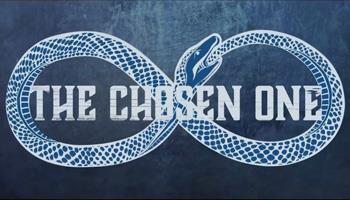
With so many hours to fill, television eventually gets around to almost every contemporary issue.
So it’s no surprise the new Netflix series The Chosen One, which rolls out Friday, tackles the delicate subject of vaccination.
Filmed in Brazil with Brazilian actors and clumsily dubbed into English for U.S. audiences, The Chosen One isn’t particularly subtle or lyrical.
 It does take an interesting perspective on the whole subject, that is, whether governments should have the power to order mandatory vaccination against potentially devastating diseases.
It does take an interesting perspective on the whole subject, that is, whether governments should have the power to order mandatory vaccination against potentially devastating diseases.
And why some people resist.
The refreshingly clean setup of The Chosen One has three doctors from the World Health Organization tasked with traveling to a remote jungle village and vaccinating all the residents against a dangerous, recently discovered mutation of the Zika virus.
Lucia Santeiro (Paloma Bernardi, top) heads the team, though her boss back at HQ isn’t sure she’s up to it. She has a particularly strong personal belief in the importance of medical intervention, it turns out, so she’s determined to get the job done at any cost.
She’s joined by Damiao Almeida (Pedro Caetano, top), a rich heir who got into doctoring to do some good for the world, and Enzo Vergani (Gutto Szuster, top), a burned-out volunteer who prefers the research side of medicine to dealing with actual patients and their sometimes traumatic situations.
 They head for Aguazul, an isolated community in the Pantanal. Their first clue to their welcome comes when the only road to town is blocked by an abandoned bus with “No Entre” spray-painted on the side.
They head for Aguazul, an isolated community in the Pantanal. Their first clue to their welcome comes when the only road to town is blocked by an abandoned bus with “No Entre” spray-painted on the side.
Enzo suggests they take the hint and turn back. Lucia has none of it, and they hire a local to ferry them over by boat.
When they disembark, they seek out the town’s health clinic, which has allegedly been manned for the past decade by Dr. Lorenzo (Kiko Vianello). Everyone they pass on the street refuses to speak and quickly hustles indoors.
Aguazul has a terrible Welcome Wagon policy, and things only get uglier before the arrival of Mateus (Mariano Mattos Martins), who seems to be a community leader. He apologizes to the doctors for the lack of hospitality and promises to work with them to convince the villagers that vaccination is important.
Mateus cautions that it’s still a touchy subject because disease has never been a problem here. Because of their physical isolation, the villagers are not exposed to diseases from outsiders and pretty much never get sick.
There’s some historical precedent for that attitude. Many Native Americans died a couple of centuries ago because they had no exposure to, and thus no immunity against, diseases like cholera that were imported by European explorers.
 Mateus has another agenda, however, which won’t surprise viewers who have been paying attention to the low level of ominous music that always seems to be playing in Aguazul.
Mateus has another agenda, however, which won’t surprise viewers who have been paying attention to the low level of ominous music that always seems to be playing in Aguazul.
The skepticism toward vaccination, it turns out, goes beyond pure medical concerns. The villagers place their trust in faith more than science, and their particular brand of faith soon makes The Chosen Oneboth more interesting and less “ripped from the headlines.”
As the story moves along, it becomes more complicated, sprinkling in elements of supernatural and horror. Still, it continues to address in its own way several core arguments in the faith-vs.-science debate, and for that reason, it’s a relevant if offbeat piece of television.